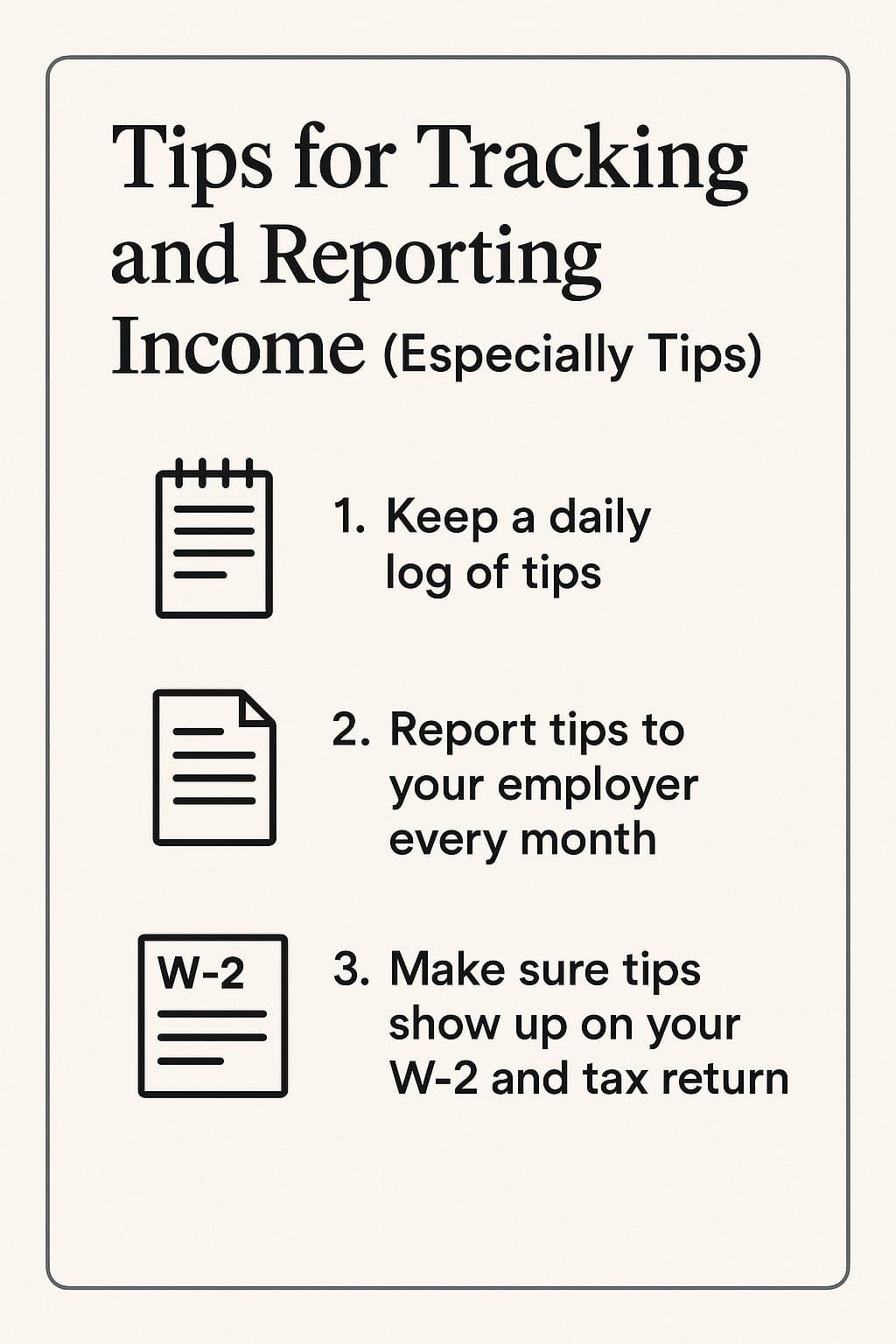Working part-time in a restaurant, bar, or hotel does not disqualify you from Social Security. The Social Security system cares about your earnings and taxes paid, not whether you clock in 40 hours a week.
As long as you’re on payroll and paying Social Security (FICA) taxes on your wages (including tips), you’re earning credit toward future benefits.
In other words, a server working 20 hours a week and a full-time cook both contribute to Social Security – the law makes no distinction based on “full-time” or “part-time” status.
Whether you’re front-of-house (like a Server or Bartender) or back-of-house (Cook, Dishwasher, etc.), your covered earnings will count toward Social Security.
How Social Security Credits Work (and What Income You Need)
Social Security benefits (like retirement or disability) require you to earn “credits” by working and paying into the system. You generally need 40 credits (about 10 years of work) to qualify for Social Security retirement benefits.
These credits are tied to your income, not hours. In fact, the government sets a dollar amount that equals one credit, and it adjusts annually. In 2025, every $1,810 in earnings gives you one Social Security credit.
You can earn up to 4 credits per year, no matter how high your income – so earning at least $7,240 in 2025 would net you the maximum 4 credits for that year.
If you earn less, you’ll get fewer credits for the year (for example, $3,620 in covered wages would yield 2 credits). Part-time hospitality workers can absolutely accumulate 40 credits over time; it might just take more calendar years if your annual earnings are lower.
The good news is credits add up over your lifetime and don’t expire, so even seasonal or part-time stints contribute to your total. And once you have 40 credits, you’re eligible for retirement benefits – extra credits beyond 40 don’t by themselves increase your benefit amount (what matters then is how much you earned, which we’ll explain next).
Why Reported Income Matters for Future Benefits
Reporting all your earnings (including tips) is crucial because Social Security calculates your benefit based on the income on record. If you under-report your income (for instance, not reporting cash tips), you’re essentially giving yourself a pay cut in the eyes of Social Security.
Your monthly retirement check, disability coverage, and even family survivors’ benefits are based on the wages reported to the SSA over your career. So if you only report your $2.13 hourly base wage but not your $150 in nightly tips, Social Security will “think” you earned far less.
Come retirement, your benefit could be much smaller than it should be. In fact, the IRS notes that the more tip income you report (and pay Social Security tax on), the greater your Social Security benefits down the road.
Simply put, the more you pay into Social Security, the more you’re likely to get out. This is true for everyone, but especially important for tipped hospitality workers who might otherwise have a big gap between their official wage and their real income.
Think of reporting your full income as an investment in your own safety net – it can boost your future retirement checks and also ensure you qualify for things like Social Security disability or survivor benefits if something unexpected happens.
Earning Social Security Credits with Multiple Part-Time Jobs
It’s common in hospitality to juggle two or more part-time jobs (maybe a lunch shift at one restaurant and dinner at another). The Social Security Administration keeps one earnings record for you, tied to your Social Security number, and all your jobs feed into it.
Every employer you work for reports your wages to the SSA each year, and those earnings get combined. If you made $4,000 at Restaurant A and $4,000 at Restaurant B this year, Social Security sees that as $8,000 total – which would give you 4 credits for the year (since it’s over the $7,240 threshold for 2025).
There’s no penalty for working multiple jobs; in fact, having two part-time incomes can help you reach the earnings needed for credits. Just remember, you cannot earn more than four credits in one year even if you work 10 different jobs – four is the max anyone can get in a year.
The key is that all your covered earnings count. So don’t worry that working a second job will somehow split or reduce your Social Security – if anything, it increases your total contributions.
Tip: Make sure each employer has your correct Social Security number so your earnings get properly recorded. It’s worth checking your annual Social Security Statement to verify that all jobs – even short-term gigs – are listed with the right earnings.
Tips for Tracking and Reporting Income (Especially Tips)
Part-time hospitality workers, especially servers and bartenders, often earn a big chunk of income through tips. Properly tracking and reporting those tips is not just about obeying the law – it’s about protecting your future benefits. Here are some practical steps to do it right:

Keep a daily log of tips
Write down your tips after each shift or each day. The IRS actually provides a template (Form 4070A) for a daily tip record, but any notebook or notes app works. The important thing is to have a consistent record so you don’t lose track of cash tips. This habit also makes it easier to report accurately to your boss each month.
Report tips to your employer every month
If you get $20 or more in tips in a month at one job, you’re required by law to report that to your employer by the 10th of the next month.
In practice, most restaurants have a system (like a point-of-sale prompt or a form) for you to declare tips at the end of a shift or pay period. If your workplace is informal about it, you can use IRS Form 4070 or even a written statement – what matters is that your employer has a record of your tips.
Once you report them, your employer will withhold Social Security and Medicare taxes on those tips (and also contribute the employer’s share), just like they do for your hourly wages.
This ensures that all your tip income gets “on the books” for Social Security. (If in a rare month you earn less than $20 in tips at a job, you’re not required to report that to the employer – but realistically, in hospitality you’ll usually exceed this threshold.)
Make sure tips show up on your W-2 and tax return
At year’s end, check your W-2 form from each employer. It should list your tips in Box 1 (wages) and Box 7 (Social Security tips) separately. Verify these numbers match what you believe you earned. When you file your income taxes, all tip income should be included.
If you discover you forgot to report some tips to your employer during the year, you’re still required to report them on your tax return (you’ll use IRS Form 4137 to pay the Social Security/Medicare tax on unreported tips). Handling it at tax time will credit that income to your Social Security record even if it was missed on the monthly reports.
Bottom line: be diligent in tracking and reporting every dollar you earn – your future self (and bank account) will thank you.
Common Misconceptions about Part-Time Work and Social Security
There are a few myths floating around about part-time jobs and Social Security. Let’s clear those up:
“I work part-time, so I won’t get Social Security.”
False. Any job where you pay into Social Security can earn you credits toward benefits, regardless of hours. You don’t have to be full-time. Even sporadic or seasonal work counts, as long as your earnings are reported. Over time, part-time earnings can accumulate the 40 credits you need for retirement benefits
“You need to work 10 straight years at one place to qualify.”
Not true. The 40 credits (10-year) rule doesn’t mean 10 continuous years at one employer. You could work 5 years at a hotel, take time off, then work 5 years at a bar – if the total adds up to 40 credits (and you’ve paid Social Security taxes on those earnings), you’re covered.
In fact, you could patch together dozens of short jobs; all that matters is the total credits and earnings on your record. Credits never expire, so gaps between jobs don’t erase what you earned before.
“My tips don’t really count toward Social Security.”
They do count, as long as you report them. By law, cash tips are treated as wages for Social Security once you accumulate $20 or more in a month from one employer.
That means tip income is subject to the same Social Security tax as your hourly pay, and it boosts your earnings record for future benefits. If you leave tips unreported, not only are you technically breaking the law, you’re also missing out on credit for that money.
Hospitality workers can earn a lot in tips – don’t shortchange yourself by hiding it. Reporting tips might slightly reduce your take-home pay now (due to taxes), but it increases your Social Security protection later.
“Having two part-time jobs means Social Security gets messed up.”
No need to worry – Social Security will combine all your earnings correctly. You’ll still get up to 4 credits per year maximum, whether your income comes from one job or several.
There’s no disadvantage to your benefits if you work multiple jobs; in fact, earning more across jobs only helps your eventual benefit (and won’t cause any penalties until you actually start claiming benefits, which is another topic).
Just ensure each employer reports your wages under your name. If you’re ever unsure, you can create a “my Social Security” online account to check that all your jobs and earnings show up on your record each year.
“Part-time workers get a smaller Social Security check.”
The size of your future check depends on your lifetime earnings, not whether you were part-time or full-time. However, it’s true that if you earned less (by working fewer hours or in lower-paid roles), your benefit will likely be lower than someone who earned more.
Social Security calculates your benefit based on your 35 highest-earning years. If you have some years with no income or very low income, those years might count as zeros which can bring down your average. But you will still get a benefit if you’ve met the credit requirement – even if it’s modest.
And if you continue working (even part-time) and replacing zero-earning years with some earnings, you can improve that average.
Remember, once you’ve got 40 credits, extra work won’t give you more credits, but earning more can raise your eventual monthly benefit by replacing lower-earning years in the calculation. So every bit of reported income helps.
Bottom Line
Part-time hospitality workers can and do qualify for Social Security. The law is clear that as long as you’re paying into the system, you’re earning your stake in it.
Make sure you report all your wages and tips, keep an eye on your Social Security earnings record, and know that even if your paychecks are small, they’re steadily building toward a valuable retirement and safety-net benefit in the future.
By understanding how the rules work, you can avoid the common pitfalls (like underreporting tips) and make the most of the benefits you’re earning.
Social Security may seem distant when you’re hustling in a restaurant today, but what you do now – even part-time – directly impacts what you’ll get later. Stay informed, keep good records, and you’ll set yourself up for the Social Security protection you’ve rightfully earned.






Loading comments...